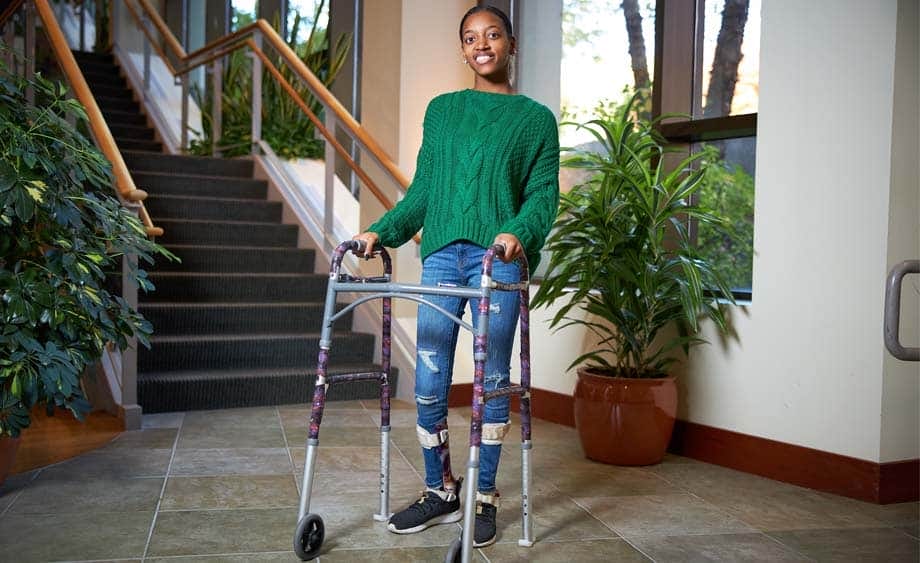Why Choose Us
Learn more about Good Shepherd Rehabilitation Hospital, a destination for recovery for stroke, brain injury, spinal cord injury and complex medical rehabilitation.

Most spinal cord injuries (SCIs) are the result of a sudden, traumatic impact to the spine — for instance, a car accident, fall or sports injury. An SCI occurs when the bones in the back (vertebrae), spinal cord, or surrounding soft tissue are injured, resulting in a loss of communication between the brain and parts of the body. Which parts of the body are impacted depend upon the severity and location of the spinal cord injury.
The spinal cord is like an information super highway for your body. Composed of bundles of nerves, 31 butterfly-shaped bones called vertebrae, and a covering of soft tissue called myelin, it is the conduit for every message sent between your brain and body. When the spinal cord is damaged, this information flow between the brain and body parts below the injury site is restricted or completely blocked. The result is a loss in function or sensation in those body parts.
Broadly speaking, SCIs are considered either complete or incomplete:
A complete SCI occurs when the spinal cord is injured or severed and communication between the brain and body below the injury site is completely blocked. For instance, a complete SCI in the lumbar region (lower back), may lead to paralysis below the waist while the upper body and arms retain their function, a condition known as paraplegia. If the injury is in the cervical area (neck), complete paralysis may occur in the lower body and upper body, a condition known as quadraplegia or tetraplegia. A complete SCI always results in paralysis on both sides of the body below the site of the injury.
An incomplete SCI reduces but does not completely block communication between the brain and the body parts below the injury. Incomplete SCIs affect one or both sides of the body and are vastly different from patient to patient. In some patients, an incomplete SCI may cause the loss of sensation in one arm and both legs, known as triplegia; in others, it causes very little damage and allows for an almost complete recovery.
Any body part, organ, sense or function can be affected by a spinal cord injury. This includes reflexes, muscle movement, bladder and bowel function, sensations, breathing, heart rate, metabolism, and more.
Symptoms of a spinal cord injury may appear directly after the injury occurs, or may occur gradually.
SCI symptoms include:
After hospitalization and initial treatment, inpatient and outpatient rehabilitation is necessary to help patients adjust to their injury and to restore as much function as possible. Each patient has a unique injury that requires a unique treatment plan, but most include:
If you would like to know more about spinal cord injury rehabilitation at Good Shepherd, please visit our SCI rehabilitation page or call 1-888-44-REHAB.